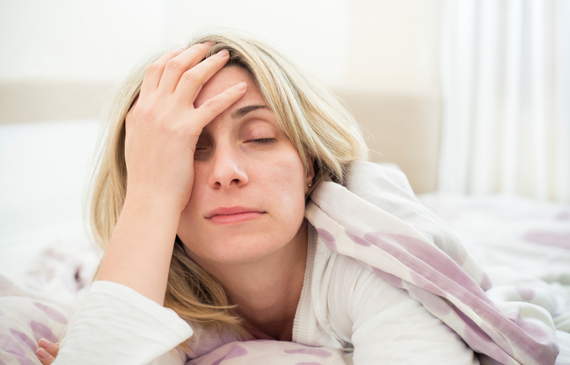Do We Want To Really Drag Ourselves Around Like Zombies?
There's a reason why sleep deprivation is classified as a form of torture and is a common strategy employed by religious cults. They force prospective members to stay awake for extended periods to reduce their subjects' decision making ability and make them more open to persuasion. So the choice is ours. Do we want to be empowered women and men taking charge of our lives? Or do we want to drag ourselves around like zombies? Arianna Huffington, Thrive
Millions of People Do Not Get Enough Sleep
According to the National Sleep Foundation (NSF) sleep is essential for a person's health and wellbeing. Yet millions of us do not get enough sleep and many suffer from lack of sleep.
Surveys conducted by the NSF (1999-2004) reveal that at least 40 million Americans suffer from over 70 different sleep disorders and 60 percent of adults report having sleep problems a few nights a week or more. Most of those with these problems go undiagnosed and untreated. In addition, more than 40 percent of adults experience daytime sleepiness severe enough to interfere with their daily activities at least a few days each month - with 20 percent reporting problem sleepiness a few days a week or more. Furthermore, 69 percent of children experience one or more sleep problems a few nights or more during a week.
Sleeping Well Is Essential For Our Physical Health
At least a third of us don't sleep well. Most people wake up tired and the tiredness lasts throughout the day. However, sleep is an essential physiological function; a key research concept is that of 'social jetlag' - the difference between when our internal body clock wants us to get up in the morning versus when we are forced out of bed by our alarm clock.
Sleep underpins all aspects of our health
Sleep underpins all aspects of our health; it is when our bodies are designed to recover from the stresses of the day before, and to prepare for the stresses of the day ahead. Poor sleep can lead to an increase in the chronic stress response and thus a reduction in the immune function and further consequences to almost every aspect of our health and wellbeing.
Quality sleep becomes more about the choice of sleep environment
Rested sleep is not just about how many hours we sleep, but also about quality of sleep, and a significant part of the quality is about the sleep environment.
Increase Relaxation and Support Physical and Mental Functions
Supporting a better sleep environment
In my research into the wellness industry I have discovered that the Kenko Naturest Sleep System is specifically designed to increase relaxation and support a variety of physical and mental functions for restful and restorative sleep.
Effects
An adaptive sleep system for improved support for the musculoskeletal system, improved temperature control and additional enhancements in comfort will contribute to quality sleep.
This is significant because according to many medical authorities, quality sleep may be the single most important factor in maintaining long-term health.
Can contribute to better mental function such as improved learning ability and decision-making faculty, improved memory, greater alertness and increased mental performance.
Quality Sleep and Physical Health
Quality sleep can also support physical health including resistance to/recovery from fatigue, improved immune system function, better ability to resist premature aging, increased ability to resist stress, and better-regulated hormone production that can help prevent weight gain or obesity.
Additional Sleep Tips From the Experts Consulted in Thrive
•Make your bedroom darker and keep it cool.
•Practice deep breathing before bed.
•Take a warm bath before bed.
•Exercise or at least walk every day.
•Banish all LCD screens (laptops, tablets, smartphones, TV) at night.
•Cut down on coffee after 2pm and avoid alcohol right before bedtime to give the body time to metabolize it.
Creating a Personal Sleep Revolution
Creating a healthier, happier life doesn't need to be complicated. By simply incorporating the Kenko Naturest Sleep System into our bed and adding the sleep tips suggested we will begin to create our personal revolution that will change our culture, our thinking, our workplaces, and our lives.
Share this Article
Please share this Third Metric article with your friends and significant others. To find out more about the Third Metric & Sleep read Thrive, Chapter One, 'A New Blueprint: Time to Renovate the Architecture of Our Lives'. To find out more about the Kenko Naturest Sleep System contact Jackie at; thrive.huffpost@gmail.com
